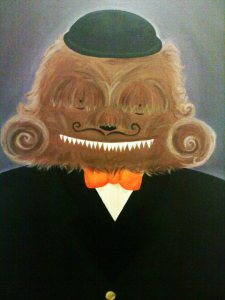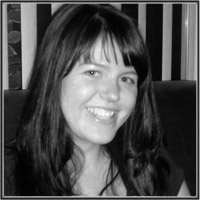 Superstition Review intern Crista Jackson conducted this telephone interview with Tina Packer, the founder and artistic director of Shakespeare & Company. Her play “WOMEN OF WILL” is running at the Colorado Shakespeare Festival July 5 through Aug. 12 at the University Theatre on the University of Colorado campus in Boulder. Directed by Eric Tucker. Created by Tina Packer. Featuring Packer and Nigel Gore. Part 1, July 5, 7, Aug. 10; Part 2, July 10, 14, Aug. 11; Part 3, July 17, 21, Aug 11. (7:30 p.m. curtain) Part 4, July 24, 28, Aug 12. Part 5, July 31, Aug 4, 12. Single tickets, $10-54. Special packages available. Info and Tkts: coloradoshakes.org or 303-492-0554
Superstition Review intern Crista Jackson conducted this telephone interview with Tina Packer, the founder and artistic director of Shakespeare & Company. Her play “WOMEN OF WILL” is running at the Colorado Shakespeare Festival July 5 through Aug. 12 at the University Theatre on the University of Colorado campus in Boulder. Directed by Eric Tucker. Created by Tina Packer. Featuring Packer and Nigel Gore. Part 1, July 5, 7, Aug. 10; Part 2, July 10, 14, Aug. 11; Part 3, July 17, 21, Aug 11. (7:30 p.m. curtain) Part 4, July 24, 28, Aug 12. Part 5, July 31, Aug 4, 12. Single tickets, $10-54. Special packages available. Info and Tkts: coloradoshakes.org or 303-492-0554
Superstition Review: When did you first begin acting? What was the first production that you were involved in?
Tina Packer: I first began acting in high school, although, not a lot. It was not like American high school where you do musicals all the time. I performed in three plays, or something like that, but I liked it enormously. Then I went off to Paris, and obviously, I could not act there, but I thought to myself ‘hmm…maybe I could stay here forever and become an actor.’ When I came back to England I applied to drama school. I went to the Royal Academy of Dramatic Arts and studied there for two and a half years. After that, I did some television roles and went on to the Royal Shakespeare Academy. Essentially, I did my training and then went straight into professional acting. The first production that I was involved in was a television show called “No Hiding Place.” It was a thirty minute program that ran every week.
SR: When did you discover your interest in Shakespeare’s plays?
TP: I did eight plays in school and then I went to see the Royal Shakespeare Company, which I had always loved. I suppose my real interest began when I started to work at a theater company that had very weird ideas about how to perform Shakespeare. In any case, I started to work with the Royal Shakespeare Company almost immediately after drama school. I was getting deeper into it but I kept encountering the problem of wanting to work on Shakespeare’s plays a certain way while they wanted to work on it in a different way. That is where I felt like I could see the brilliance of Shakespeare’s plays and that brilliance just grew over the years. I was in the regular theater as an actor for about six years and doing television when I thought ‘I’ve got to switch to being a director because I have all the ideas of what Shakespeare is about. Unless I’m a director I’m never going to have the power to put them into practice.’ I switched to directing at that point. The kind of directing I was interested in was how actors could go further than they were with their acting and their bodies. So, it was an ongoing process. There was a eureka moment when I set up my own company but there was no eureka moment concerning why I was fascinated with Shakespeare; my fascination just grew and grew.
SR: You have authored several books, how has your experience as a writer differed from your experience as an actor and director?
TP: It is a completely different medium. When you are an actor you use your entire body and you are in a state of being. You are being as truthful as you can with the whole of your being. When you are directing you are directing other people to be as truthful as they can. You are absorbing all of their energy and their emotional state of being. So being a director is quite painful in a way because you are absorbing other people’s energy. When you are writing you are imagining what is going on and you are getting it on paper as fast as you can. It is just a different state. Of the three mediums, acting, writing, and directing, I find acting the most organic. I like directing because it really spins my brain and forces me to think through what every character thinks; what the overall shape and form is and how I can best represent it. Being a writer you only have yourself. You do not have an audience that is going to react to you and say “this is good. That is bad.” You do not have a load of actors trying to do what you are saying; all you are doing is imagining it and writing it down on the page. You have no idea whether it is any good or not.
SR: You were quoted in another interview as saying “the actor’s job is to speak that which cannot be spoken.” Can you explain the concept of the actor as a messenger?
TP: Yes. The function of theater, I think, is to articulate those things which are hidden. They are hidden because they live in the subconscious mind. All art, whether it is painting, music, dance, etc., functions to bring those things that are subconscious to consciousness so that you can see them. Well, with the actor you have to take it a bit further. Especially in Shakespeare, it is the language that makes the difference. There are things that are not being said, either because they are suppressed by the powers that be or the people have just absorbed those ideas as thinking ‘oh, that’s reality,’ but it is not reality it is the way reality is depicted. You know how in the ’50s movies they presented a kind of very innocent, un-embodied sexuality? The films would always present a certain kind of sexuality which was the form that society wanted to think about sex in, or was comfortable with. With the ’60s came a whole turnaround that showed the ’50s as a misrepresentation of what humans are, of what marriage is. So really, in a way it was theater’s job to point out that that was not how things were. That is an example of how theater articulates a further truth.
SR: What inspired you to explore the female characters in Shakespeare’s plays?
TP: I had done about two-thirds of the canon and I suddenly saw that there was a progression in the female characters. It came to me one day when I was watching one of my own productions. I had done different parts of the canon by then; the beginning, middle, and end. Suddenly, I realized a pattern in the female characters. Once I got the idea I wanted to explore it further, because obviously, I am a woman and Shakespeare’s relationship to women is very important to me.
SR: What do you mean when you say that Shakespeare’s writing embodies or explores feminine qualities?
TP: As a rough categorization we ask, what is masculine? Well, masculine is much more linear, based on glory and is going to have an aggressive streak to it. The cliché of what is masculine is going to be goal oriented rather than relationship oriented. It is going to be cerebral. That is what people usually consider as masculine. What are usually called feminine are relationships, feelings, allowing your intuition to take hold. If you have got a goal it is usually related to a relational goal. For instance, you want your family to be really happy or you want everybody to get along. It is similar to how I felt when I wanted a deep collaboration with everybody, not wanting some people to be stars and others not. Those characteristics are usually called feminine. So if you think about what an artist uses, whatever kind of artist, what they use are feminine qualities. They are very much to do with feelings, intuition, and relationships. Whether the relationship is paint on a canvas, of one color against another, or whether it is how your characters relate to each other on stage. The attributes are very much feminine. When you think of the embodiment of female sexuality and physical function it is very internal. Menstruating, being pregnant, etc. Whereas, masculine is much more exterior physicality—who runs the fastest, throws the ball the hardest— it has more to do with action than female physicality does. So if you are embodying a role like actors do it is a much more feminine attribute regardless of the actor’s gender.
SR: What do you think of the evolution of Shakespeare’s female characters? What caused the transformation of his early characters from the false dichotomy of modest virgins and harlots to more complex, multifaceted and realistic female characters?
TP: Well, this is what I got a Guggenheim for. I spent a whole year finding out what the answer was and the answer is in “Women of Will.” The best way to have this question answered is for you to come see “Women of Will,” because I can’t do it justice but I will have a go. Basically, what I believe happened to Shakespeare is that he started off as most young men do, being full of sexual hormones and feeling that women had the upper hand or did not have the upper hand. He didn’t really associate with women; he projected onto them. In part one, women were usually either shrews or virgins on a pedestal. During this phase of his writing he either over idealizes them or makes them into marauders. That is a very early Shakespeare. Suddenly, he seems to fall in love himself and becomes passionate and suddenly the women like Juliet have as much air time as the men. He begins to explore the female characters as deeply as he explores the men. They are allowed their full sexuality, their full voices, they are whole people. So suddenly, he is not seeing women as something he thought he had to control or deal with, instead, he is seeing women as human beings and that might be because he grew up, fell in love, and therefore saw women differently.
The only way men and women can have real, deep relationships is if you have power to give up. You cannot have a deep relationship, then or now, if you don’t have power to give the other person. So what you see out of this is that Shakespeare starts using women to tell the truth about what is going on because women are always outside of the power circle. They don’t particularly have power; they get power through the men they have associated with, the exception being Cleopatra, of course. So, by and large, women are looking at power much more deeply than men are. So we go into the third part of his writing life where women are really trying to tell the truth about what they see. Here if they disguise themselves as men, if they live underground, they can say what they like and everybody responds to them and that is just fine. Then at end of the play they can say “oh look, I’m really a woman,” but by that time they have organized the society; everyone gets married, procreates and it is all well and good. If they stay in their frocks and they start telling the truth about what they see they get killed or kill themselves so their voices are useless. So you really see what women are up against.
In the fourth section, the women take on power the same way as men, like Lady Macbeth, the eldest daughter in Lear, etc., the women have power just like the men do. They want power just like the men, they start going after power in the same way that the men do and the country ends up in chaos. In the fifth part he finds a way out of the killing cycle which he has been telling for so long and it is by the daughters revealing the fathers and the art of acting. He shows that art has to come into life somehow, otherwise, we will never be able to stop the killing cycle. That is the sixth part, when Shakespeare has gone back to live in Stratford and he is with his daughters again who he has not seen for 20 years while he has been in London working. So it is all about how the daughters can redeem their fathers. That is the briefest of outlines.
SR: After four decades of studying The Bard of Avon are you still mesmerized by his writing? Do you still find yourself gleaning new epiphanies from the texts and plays you have become so familiar with?
TP: Yes, because texts which hold big truths, you tend to see differently at different points of your life. You might read something that you never thought anything of and then all of a sudden it holds some significant meaning because you have reached a new place in your life. So you can see things you had not seen before. For example, a hundred different books have been written on “to be, or not to be, that is the question,” and it is still the question. People still come out with a whole host of answers about what it means. It is the exploration which is important not the answer. That is true of all of Shakespeare’s plays or any great poetry; it doesn’t give you the answers to life, it breaks life open.
SR: What are the unique benefits of theater as compared to other forms of art? Is there something special about using the body as an instrument of communication?
TP: Yes, there is something special about theater but it depends because different people are awakened by different art forms. If you are the type of human where music awakens all of your sensory perceptions then maybe theater isn’t going to do it for you. So it really depends on the human being but why theater is very important is it is really trying to recreate life as a whole so it can include music, dance, poetry, and all of the other art forms. It is really trying to use life itself as the art form. So that means there is a huge demand on the body because you are putting your own body there. With your own body you are trying to recreate life. All art forms awake sensory perception, which means that you see the world more clearly; you have got more tools to look at the world. What happens to me when I am acting is that I get to feel more consciously what it is that I am feeling. It is not just the body; it is the body and the voice together that make theater so incredible. The body looks like it is solid and it feels solid, the voice is ephemeral and it is coming and going.
SR: What about the difference between live theater and broadcast theater? Is there something lost in the intimacy between the actor and the audience in broadcast theater?
TP: Acting in front of an audience gives you incredible energy and focus. When acting for television and film, you have a more internal focus; you don’t have that huge blast of energy from the audience. What happens to you when get the focus of all those people is that it starts transforming the energy and something starts happening, that you have no control over, because of the energy that you receive from the audience. In that respect, theater is an incredible medium. You feed off of the audience’s energy and it takes you places that you didn’t know you could go.
It isn’t that film and television can’t do some really good work, they can, but it is much more self-representing than when you have the audience. I think that a large part of it is the acknowledgement, ultimately, that you are all in the same space. You just pretended something and maybe everybody wept and laughed and you have done that together and there is a real sense of unity in that which you never get on television or in film. In film the camera is picking up your performance and then translating it and you are never in the same space with the audience. It is a different experience and I think that it lacks the sense of community that theater builds.
SR: The story behind the founding of Shakespeare and Company is incredibly inspiring. You began with 20 homeless actors and a couple thousand dollars. What was going through your mind? Was there ever a moment when you thought of giving up?
TP: What was going through my mind was the kind of theater that I wanted to do. I was just seizing the opportunity of having a house to live in and having a few thousand dollars so I could pay everyone. All I was thinking was ‘okay, so we can get a Shakespeare play up in this amount of time and we can do the kind of work that exemplifies what I am talking about. Then we can invite everybody to see it. They will get inspired and give us more money to work on more projects.’
SR: Do you think Shakespeare had a special message he was attempting to convey to fellow artists?
TP: No. I think that he was doing what all artists do; he was not sitting around trying to think up special messages. Artists try to find out what the truth is and try to figure out what life is about. To the best of their ability they try to see how power structures work, the way in which we deal with our families, etc., and how it affects everyone else. You know, all the big issues of life they were simply trying to tell the truth about. What he did in his later plays, when he got back to Stratford, he started trying to tell the truth about the impact that daughters have on their fathers.
SR: How important do you think it is for artists to teach and pass on their art?
TP: I think the desire to pass on what you have learned is natural. I think that if you are an artist it does not work until the audience is there. Whether it is theater or someone looking at your painting, reading your poem, it does not work until somebody else interacts with you. Then if you find it at all exciting your next reaction is to start telling people how you did it so they can do it too. I think all creativity has been a continuous stream from the very first time people were creating plays around the campfire or doing paintings on the cave walls.
SR: Do you have any advice for novice actors, playwrights, or directors? Were there any words of wisdom that helped you through the dark hours of your career?
TP: Keep on honing your vision. If things are not working just persist and keep on looking to see what is keeping the communication, from artist to audience, from happening. It is all about persistence.
SR: What are you currently working on? Do you see yourself writing anymore books?
TP: I will write some more books on methodology in Shakespeare and Company but the writing is really an expression of the acting and directing so I will write about those subjects. Right now, I am so immersed in the struggle to get “Women of Will” up and the book out that I cannot think further than getting it all done.
Read more about the play here: Shakespearean dynamo Tina Packer brings theater production “Women of Will” to Colorado – The Denver Post
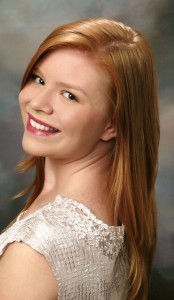 Through her experience with Superstition Review, Carly hopes to gain a firmer sense of an editor’s responsibilities, as well as the skills to fulfill these duties. While she plans to continue writing in many capacities, Carly would also like to help members of the general public to understand the value of written expression and communication, most likely through editorial and teaching positions.
Through her experience with Superstition Review, Carly hopes to gain a firmer sense of an editor’s responsibilities, as well as the skills to fulfill these duties. While she plans to continue writing in many capacities, Carly would also like to help members of the general public to understand the value of written expression and communication, most likely through editorial and teaching positions.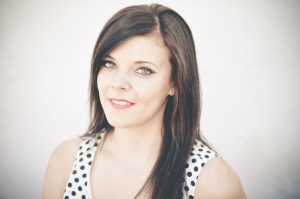 She fell in love with language since first attending grade school, and entered an early engagement with poetry in the third grade after selecting a dusty volume of Edgar Allen Poe’s works from her parents’ bookshelf in the family living room. To this day she still recalls the beginning lines of “The Raven” with distinctness, “Once upon a midnight dreary, while I pondered weak and weary,/Over many a quaint and curious volume of forgotten lore…” Since this immersion, her relationship with the world of poetry has flourished like wild fire, traversing out of the Gothics and into the sentiments of poets such as Pablo Neruda, T.S. Elliot, e. e. cummings, and William Shakespeare. She attempts to produce similar stylization in her own poems that she finds in her favorite poets: elevated language, experimental typography, and precision in imagery.
She fell in love with language since first attending grade school, and entered an early engagement with poetry in the third grade after selecting a dusty volume of Edgar Allen Poe’s works from her parents’ bookshelf in the family living room. To this day she still recalls the beginning lines of “The Raven” with distinctness, “Once upon a midnight dreary, while I pondered weak and weary,/Over many a quaint and curious volume of forgotten lore…” Since this immersion, her relationship with the world of poetry has flourished like wild fire, traversing out of the Gothics and into the sentiments of poets such as Pablo Neruda, T.S. Elliot, e. e. cummings, and William Shakespeare. She attempts to produce similar stylization in her own poems that she finds in her favorite poets: elevated language, experimental typography, and precision in imagery. Harrison owns way too many electronic devices. An avid gamer to the core, Harrison plays World of Warcraft, where his level 85 Holy Paladin protects weaker characters from harm by healing their wounds. His favorite part of these Massively-Multiplayer games is letting the more rude characters die from a lack of healing – his roommates included. Harrison likes to pretend this philosophy does not invade his private life.
Harrison owns way too many electronic devices. An avid gamer to the core, Harrison plays World of Warcraft, where his level 85 Holy Paladin protects weaker characters from harm by healing their wounds. His favorite part of these Massively-Multiplayer games is letting the more rude characters die from a lack of healing – his roommates included. Harrison likes to pretend this philosophy does not invade his private life.

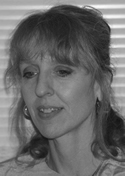

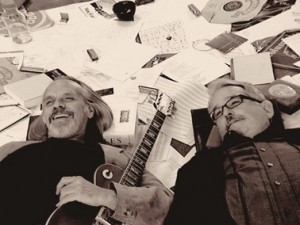
 Superstition Review intern Crista Jackson conducted this telephone interview with Tina Packer, the founder and artistic director of Shakespeare & Company. Her play “WOMEN OF WILL” is running at the Colorado Shakespeare Festival July 5 through Aug. 12 at the University Theatre on the University of Colorado campus in Boulder. Directed by Eric Tucker. Created by Tina Packer. Featuring Packer and Nigel Gore. Part 1, July 5, 7, Aug. 10; Part 2, July 10, 14, Aug. 11; Part 3, July 17, 21, Aug 11. (7:30 p.m. curtain) Part 4, July 24, 28, Aug 12. Part 5, July 31, Aug 4, 12. Single tickets, $10-54. Special packages available. Info and Tkts:
Superstition Review intern Crista Jackson conducted this telephone interview with Tina Packer, the founder and artistic director of Shakespeare & Company. Her play “WOMEN OF WILL” is running at the Colorado Shakespeare Festival July 5 through Aug. 12 at the University Theatre on the University of Colorado campus in Boulder. Directed by Eric Tucker. Created by Tina Packer. Featuring Packer and Nigel Gore. Part 1, July 5, 7, Aug. 10; Part 2, July 10, 14, Aug. 11; Part 3, July 17, 21, Aug 11. (7:30 p.m. curtain) Part 4, July 24, 28, Aug 12. Part 5, July 31, Aug 4, 12. Single tickets, $10-54. Special packages available. Info and Tkts: 